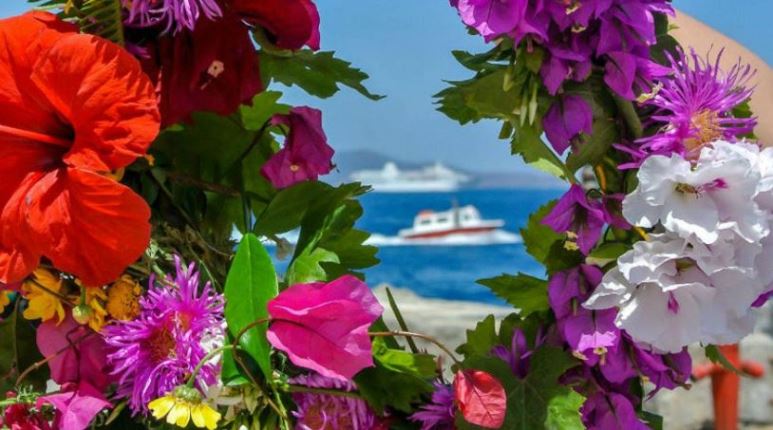For many countries, May 1 is International Labor Day . It is also a national holiday in Greece, although it is more commonly called “Protomagia” or May Day, meaning the first day of May.
May Day originates in ancient Greece as a celebration of the rebirth of nature, spring, and flowers. The month of May was named after the Greek goddess Maia, who is one of the seven stars that make up the Pleiades constellation and the mother of Hermes. The name Maia embodies the concept of growth and nurturing – it translates as both mother and midwife. The goddess was also associated with the ancient Roman fertility goddess Bona Dea, whose festival was held in May.
Maia is also known as the grandmother of magic, who gave birth to Hermes, the messenger of the gods and goddesses responsible for bringing the souls of the dead to the underworld. While her son became the god of death, she became known as the goddess of rebirth, who brings everything back to life every spring.
The word “May”, according to Greek folklore, has two meanings: good and bad, rebirth and death. According to ancient custom, the final victory of summer over winter and the victory of life over death are celebrated. Therefore, during the May holidays, the Greek land is gifted with lush green grass and blooming fragrant fields.
This day was also dedicated to the goddess of agriculture Demeter and her daughter Persephone, who on this day emerges from the underworld and returns to earth to her mother. It is said that on this day Demeter, the goddess of harvest and agriculture, is reunited with her daughter Persephone, who was abducted by the god of the underworld Hades, in the Temple of Demeter in Naxos.
Another ancient version of the Protomagia celebration has its roots in the festival in honor of Dionysus (the Greek god of theater and parties), a festival of souls, plants and flowers, a celebration of the rebirth of man and nature.Most people traditionally go to the countryside for a picnic, fly kites and pick wildflowers for a flower crown called “Stephanie” that people hang on the front door of their homes, apartments or balconies to welcome spring. It stays there until midsummer. This is also the time for locals to try the first sail of the season.In several villages of Thessaly and Epirus, you will see locals walking with cypress branches covered with yellow daisies. The branches, called “Maioxylo”, are covered with a wreath of green branches. Young men carry it in white clothes and red scarves, walking through the streets of the villages, singing songs about Maya.After sunset, you can get acquainted with another tradition called “Klidonas” – the lighting of bonfires, known as “St. John’s Fires”. Celebrants throw wreaths into the fire, after which young men jump on the flames.In honor of the first day of May, Greece hosts many parades, festivals and other celebrations. During this holiday, everything in Greece closes, except for cafes and restaurants. People celebrate May with all their hearts and with an unusual flavor that everyone should see.
Greece is a wonderful country to visit during the May holidays, because there really is something to see and participate in! You can escape from the bustle of the city by choosing a sightseeing tour to Greece for the May holidays from Anga Travel.
